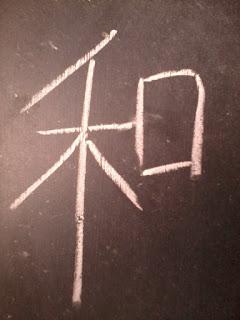
和 é la parola di congiungzione corrispondente alla “e” italiana. Tuttavia con 和 è possibile congiungere soltanto cose tra loro affini, ad esempio我买本词典和本杂志 (Compro un dizionario e una rivista)o per dire 他喜欢唱歌和跳舞 (Gli piace cantare e ballare). In quest'ultimo caso, dato che sia cantare che ballare in cinese sono parole bisillabiche (dove nella parola cantare la prima vuol dire “cantare” e la seconda “canzone” e nella parola ballare la prima significa “ballare” e la seconda “ballo”) possiamo congiungerli con 和.
Laddove le parole da congiungere sono formate da tre sillabe, come ad esempio 听音乐 (ascoltare la musica) non è più possibile usare 和. Come fare? Possiamo utilizzare la parola 也 o 还. Quando l'una e quando l'altra?
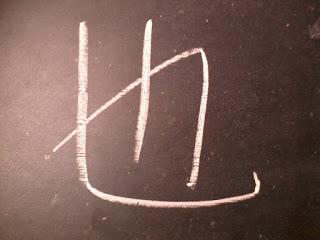
Abbiamo già incontrato la parola 也 con il suo significato “anche”. Es: 我也很好 (Anch'io sto bene). 也 tuttvia serve anche per congiungere, appunto, cose tra loro non affini oppure parole che superano la semplicità di una o due sillabe.我买本词典也买些中文杂志。(Compro un dizionario e alcune riviste cinesi)他喜欢唱歌也喜欢听音乐。(Gli piace cantare e ascoltare musica).
Uso 也 qualora il soggetto non sia il medesimo 我买本词典,他也买本词典 (io compro un dizionario e anche lui compra un dizionario) ma anche in frasi negative 我不喜欢跳舞也不喜欢唱歌 (non mi piace ballare e cantare).
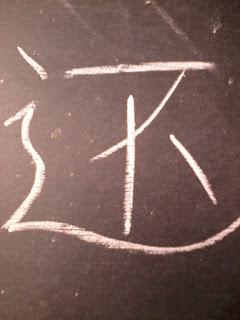
In questi ultimi due casi DEVO usare la parola 也, mentre nel primo caso posso usare sia 也 che 还.Vediamo la frase 我买本词典也买些中文杂志 (Compro un dizionario e alcune riviste cinesi), posso trasformarla in 我买本词典还买些中文杂志, il significato rimane uguale (Compro un dizionario ealcune riviste cinesi), come pure nel caso di 他喜欢唱歌也喜欢听音乐 (Gli piace cantare e ascoltare musica) che può benissimo essere espresso così: 他喜欢唱歌还喜欢听音乐 (Gli piace cantare e ascoltare musica).La differenza è che 还 significa anche “inoltre”. Questo senso di “aggiunta” non può essere espressa con 也 ma soltanto con 还. Vediamo un esempio: 我也喜欢跳舞还喜欢唱歌 (Anche a me piace ballare epoi mi piace cantare) oppure 你学习英语和日语,还学习中文吗?(Studi inglese e giapponese e pure cinese?)
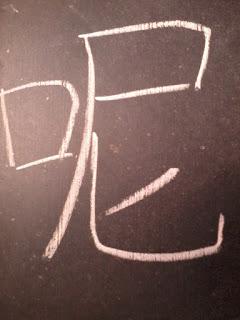
La lingua italiana usa la congiunzione “e” per legare parti del discorso dai contenuti più svariati. I casi più comuni si possono esprimire con 呢 : 我很好, 你呢?(Io sto bene, e tu?)妈妈身体呢?(Ela salute di tua mamma?)然后呢?(Epoi?)
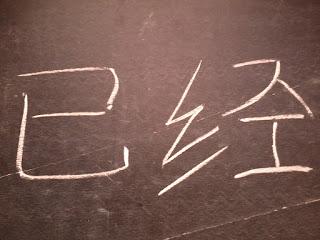
La lingua cinese, per ogni situazione, trova la sua espressione appropriata. In qualche caso con 已经 o con 就:刚才六点了, 太阳已经太日了。(Erano appena le sei eil sole era già caldissimo.)
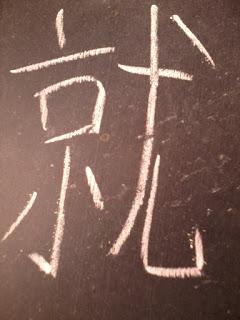 一吃完晚饭,就走了(Ha finito di cenare ed è uscito.)
一吃完晚饭,就走了(Ha finito di cenare ed è uscito.)Collegando eventi diversi per loro natura o per il periodo di tempo troveremo:在北京我学了汉语还做了一些工作。(A Pechino avevo studiato cinese e ho lavorato un po')我开始学汉语,朋友们就觉得很奇快。(Io ho cominciato a studiare cinese e gli amici l'hanno trovato molto strano.) *************************************************
和 it is the word corresponding to the conjunction "and" in Italian. However with 和 you can join only things related to each other, for example我 买 本 词典 和 本 杂志 (Buy a dictionary and a magazine)or to say 他 喜欢 唱歌 和 跳舞 (He likes singing and dancing).In the latter case, since in Chinese both singing and dancing are two-syllable words (where the word singing contains the two words "to sing" and "song" and the word dancing contains the words "to dance" and "dance ") we can connect them with 和.Where the words to be joined consist of three syllables, such as 听 音乐 (listen to music) is no longer possible to use 和. How to do?We can use the word 也 or the word 还. When the one and when the other?We have already met the 也 word with its meaning "also". Ex: 我 也 很好 (I'm well, too.) However 也 also serves to join, in fact, when things are not similar to each other, or in case of words that exceed the simplicity of one or two syllables.我 买 本 词典 也 买些 中文 杂志. (Buy a dictionary and some Chinese magazines)他 喜欢 唱歌 也 喜欢 听 音乐. (He likes singing and listening to music).We use 也 if the subject is not the same 我 买 本 词典, 他 也 买 本 词典 (i buy a dictionary and he buys a dictionary) but also in negative sentences 我 不 喜欢 跳舞 也不 喜欢 唱歌 (I don't like to dancing nor singing.)In the last two cases I MUST use the word 也, while in the first case I can use both 也 and 还.We see the phrase 我 买 本 词典 也 买些 中文 杂志 (Buy a dictionary and some Chinese magazines), I can turn it into 我 买 本 词典 还 买些 中文 杂志, the meaning remains the same (Buy a dictionary and some Chinese magazines), as even in the case of 他 喜欢 唱歌 也 喜欢 听 音乐 (He likes singing and listening to music) that may very well be expressed as: 他 喜欢 唱歌 还 喜欢 听 音乐 (He likes singing and listening music).The difference is that 还 also means "besides". This sense of "addition" can not be expressed with也 but only with 还.Here's an example:我 也 喜欢 跳舞 还 喜欢 唱歌 (I like dancing, too, moreover I like singing) or你 学习 英语 和 日语, 还 学习 中文 吗? (You study English and Japanese and Chinese as well?)The Italian language uses the word "and" to bond parts of speech from various content.The most common cases are expressible with 呢:我 很好, 你 呢? (I'm fine, and you?)妈妈 身体 呢? (What about the health of your mom?)然后 呢? (What next?)The Chinese language finds its proper expression for each situation. Sometimes with 已经 or 就:刚才 六点 了, 太阳 已经 太 日 了. (It was only six and the sun was hot.)一 吃完 晚饭, 就走 了 (He finished dinner and left.)For the porpose of topical widening or connecting events of different periods of time we will find:在 北京 我 学 了 汉语 还 做 了 一些 工作. (In Beijing I had studied Chinese and worked a bit ')我 开始 学汉语, 朋友 们 就 觉得 很 奇快. (I began to study Chinese and friends have found it very strange.)
